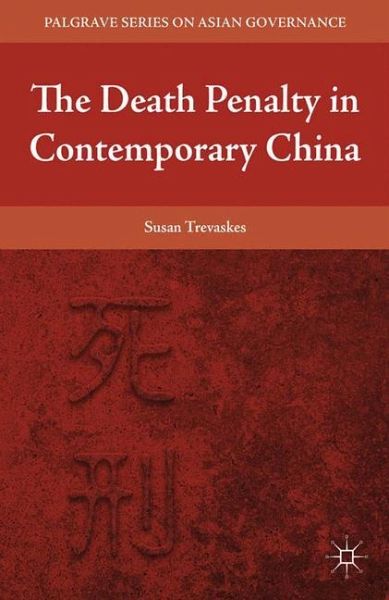
The Death Penalty in Contemporary China
Versandkostenfrei!
Versandfertig in 6-10 Tagen
76,99 €
inkl. MwSt.
Weitere Ausgaben:

PAYBACK Punkte
38 °P sammeln!
China's infamous death penalty record is the product of firm Party-state control and policy-setting. Though during the 1980s and 1990s, the Party's emphasis was on "kill many," in the 2000s the direction of policy began to move toward "kill fewer." This book details the policies, institutions, and story behind the reform of the death penalty.














